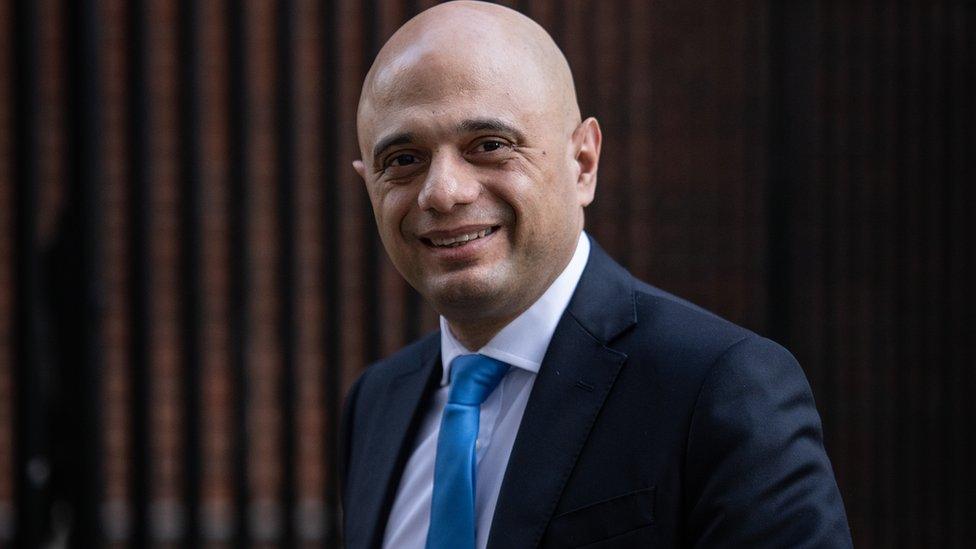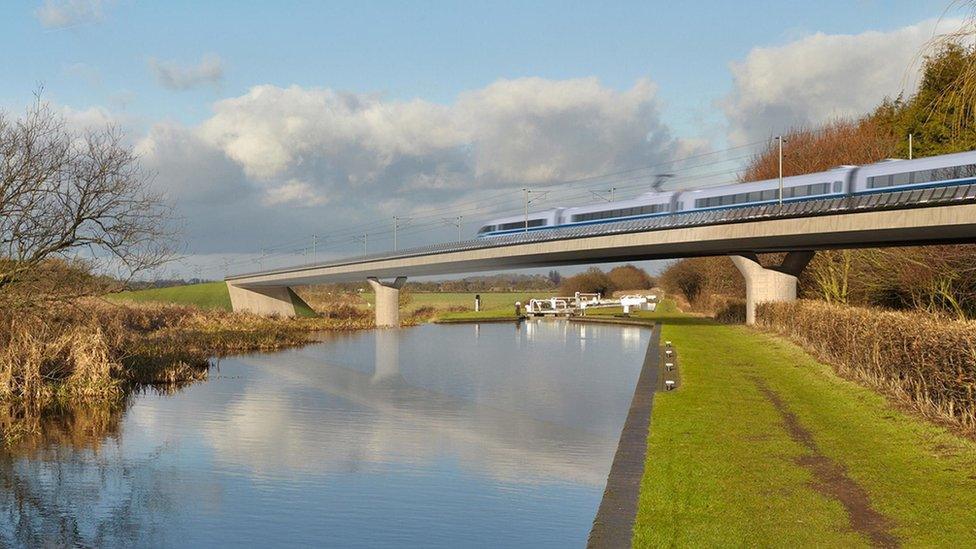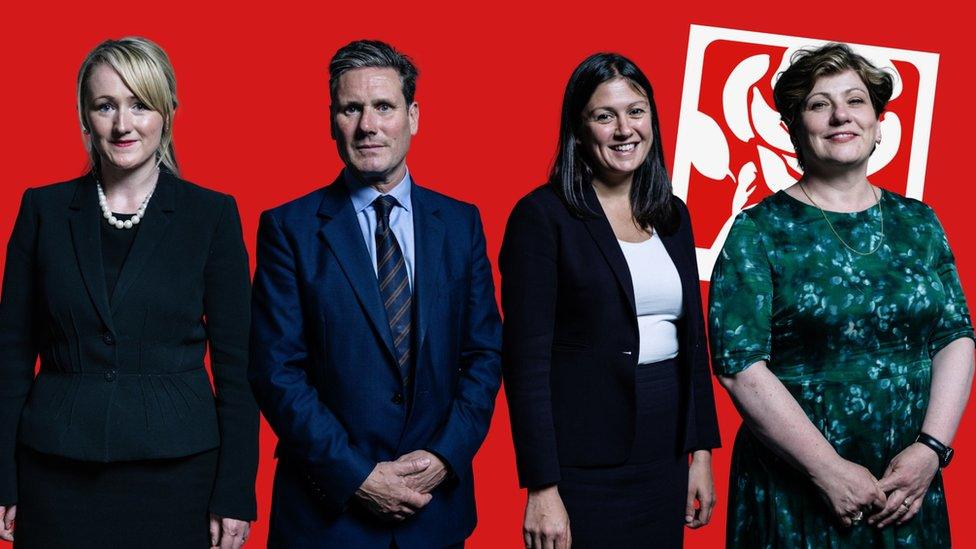Why Left is Right for Chancellor Sajid Javid
- Published

There's just over a month until Chancellor Sajid Javid delivers his first Budget
GE2019 = Brexit + HS2 + Reshuffle + X
Calculate "X" in this political equation and show your workings.
OK. Here goes: Having been returned to office with a commanding majority promising to "Get Brexit Done", Boris Johnson proceeded to give himself a "reality check" when the UK finally and formally left the EU last Friday.
He redefined that historic moment as merely "the end of the beginning", echoing his hero Winston Churchill.
After British forces had driven the Germans out of Egypt in 1942, the wartime prime minister declared: "This is not the end. It is not even the beginning of the end. But it is, perhaps, the end of the beginning."
(I never felt that this was the great man's finest hour as a speech-maker by the way: More McGonagall than Burns!)

It is thought Boris Johnson's ministerial reshuffle is being delayed until the HS2 announcement is out of the way
Back to the future; Mr Johnson is implicitly acknowledging that the real work to deliver Brexit starts next month when trade negotiations with the EU get under way.
Before then we can expect that much-heralded, but politically agonising, decision on HS2: Should it go ahead despite ballooning budgets and environmental objections?
Or should it be scrapped, as many core Conservative voters fervently hope in the shire counties which suffer so much pain with so little gain?
This presents the government with an early test of the awkward coalition they contrived at the election.
It brought together the Tories' traditional supporters in the likes of Staffordshire and Warwickshire on the one hand and, on the other, their newfound supporters in conurbations like the West Midlands, headed by the Tory mayor Andy Street, now facing a challenging re-election campaign.
I hear Boris Johnson's long-awaited ministerial reshuffle is being delayed until the HS2 announcement is out of the way.
Let the present crew carry the can before the new team takes over.
Then what?

The UK lags behind other competing economies in terms of productivity
Here comes the most intriguing question of all.
We are now just over one month away from the first Budget to be delivered by the Right Honourable Member for Bromsgrove.
Sajid Javid's biggest recent headlines came during last month's World Economic Forum when he was interviewed about Brexit by the Financial Times.
The chancellor's message was both a threat and a promise.
"There will not be alignment, we will not be a rule-taker, we will not be in the single market and we will not be in the customs union: And we will do this by the end of the year. There will be an impact on business one way or the other. Some will benefit. Some won't."
At the time this overshadowed his other, no less significant, message to his audience in Davos.
In his keynote speech he also pointed towards what he called "human capitalism".

We also have lower levels of teenage literacy than any other significant economy
Yes, we know the UK lags behind other competing economies in terms of productivity, or the lack of it.
The West Midlands prides itself as the manufacturing hub of the fifth biggest economy on Earth.
But depressing figures published one year ago by the Office for National Statistics put us eighth out of 12 on a UK regional productivity league table.
The UK is also consistently at or near the bottom of another equally unwelcome list.
We have lower levels of teenage literacy than any other significant economy. This shows yet again the social and economic inequality which begins even before children start school.
Significantly, the nine local seats which the Conservatives captured from Labour in the election are all in places languishing at the wrong end of those self-same league tables.
Voters there told me that despite Labour's generous promises, they had more confidence the Conservatives could deliver for them.
So if the first chancellor to have gone to a further education college rather then university defines "human capitalism" in his Budget, we may also expect greater investment in making people more productive as well as machines.
We have heard so much lately about government spending on an alphabet soup of infrastructure projects including 5G and HS2.
It might make a pleasant change to hear something more people-focused when Mr Javid gets to his feet on 11 March: Early years support and equality of educational opportunity perhaps.
It would certainly give some much-needed substance to the vague ministerial rhetoric about "levelling-up" regions like ours.
Labour's challenge

Are the Conservatives making a land-grab for traditional Labour policies?
Labour will take months to emerge from their own period of breast-beating following their fourth successive election defeat and followed by yet another bout of leadership infighting between "continuity Corbynites" and so-called moderates (not my favourite word).
When they do eventually peer out into the daylight they may see something like a Tory land grab: Not just seats captured by the Tories but also policies.
Wasn't it Labour who majored on early years support while they were in office only to see schemes like Sure Start severely curtailed during the Conservatives' age of austerity?
And now the Tories are even taking Northern Rail into public ownership and warning others will go the same way if they don't improve.
They're promising a national living wage of £10.50 an hour by 2024.
Whatever next? Boris Johnson's doing his best to convince us we've had the change of government already.
If the chancellor really does now believe turning Left would be right for his party's new transactional electorates in north Staffordshire and the Black Country, we might expect a Budget to include long-term measures aimed at improving those regional productivity ratings.
But that might take a decade or more to work through.
Boris Johnson doesn't have that much time. He needs growth right now to convince sceptics that Brexit will be a success.
Sajid Javid needs to calculate the numbers that can satisfy so many competing demands if he's to solve the equation I set out at the beginning.
It's what makes the "X" factor so elusive.
